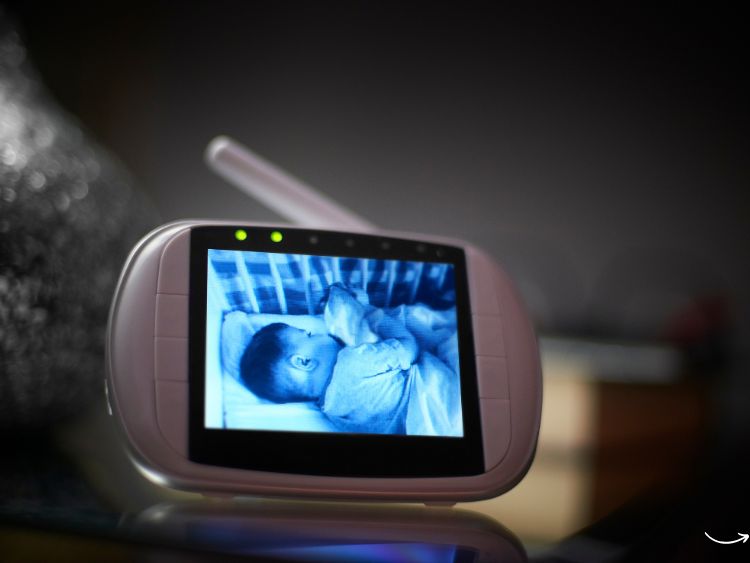As a new parent, one of the most pressing concerns is ensuring the safety and well-being of your baby, especially when they are asleep. The market offers a plethora of gadgets designed to give parents peace of mind, but one device that stands out is the baby breathing monitor. This comprehensive guide will explore everything you need to know about baby breathing monitors, from their importance and types to features and buying tips.
What is a Baby Breathing Monitor?
A baby breathing monitor is a device designed to track and monitor a baby’s breathing patterns. These monitors are particularly useful for newborns and infants who may be at risk of respiratory issues. By alerting parents to irregularities in their baby’s breathing, these devices can provide crucial intervention time in case of emergencies.
Why Use a Baby Breathing Monitor?
Peace of Mind
Parents can sleep more soundly knowing that they will be alerted if their baby’s breathing becomes irregular.
Early Detection of Issues
These monitors can detect breathing problems early, allowing for quicker medical intervention.
Convenience
Modern baby breathing monitors often come with additional features like temperature monitoring, sleep tracking, and even video capabilities.
Types of Baby Breathing Monitors
Wearable Monitors
Wearable monitors are attached to the baby’s clothing or diaper. They track breathing through motion sensors and often include heart rate monitoring.
Under-the-Mattress Monitors
These monitors use sensor pads placed under the mattress to detect the baby’s breathing movements. They are less intrusive and don’t require direct contact with the baby.
Smart Monitors
Smart monitors integrate with smartphones, providing real-time updates and alerts through apps. They often come with additional features like video monitoring and environmental sensors.
Key Features to Look For
Sensitivity and Accuracy
The monitor should be highly sensitive to detect even the slightest breathing irregularities accurately.
Alarm System
A reliable alarm system that alerts parents immediately in case of breathing cessation is crucial.
Battery Life
Long battery life ensures continuous monitoring without frequent recharging.
Connectivity
Smart monitors that connect to your smartphone via Wi-Fi or Bluetooth provide convenience and ease of use.
Ease of Use
The device should be user-friendly, with simple setup and operation.
Top Baby Breathing Monitors in 2024
- Owlet Smart Sock 3
- Features: Tracks heart rate, oxygen levels, and sleep patterns.
- Connectivity: Wi-Fi and Bluetooth.
- Battery Life: 16 hours.
- Nanit Pro Complete Monitoring System
- Features: Video monitoring, sleep tracking, breathing motion detection.
- Connectivity: Wi-Fi.
- Battery Life: Continuous power with wall mount.
- Snuza Hero SE
- Features: Clip-on wearable, vibrates to rouse baby after 15 seconds of no breathing.
- Connectivity: None (standalone).
- Battery Life: Up to 1 year (replaceable battery).
How to Use a Baby Breathing Monitor Safely
Follow Manufacturer Instructions
Always read and follow the manufacturer’s instructions for setup and use.
Regular Maintenance
Check the device regularly for any issues and ensure it is functioning correctly.
Proper Placement
Ensure the monitor is placed correctly as per the device’s guidelines to avoid false alarms or missed detections.
FAQs
Do baby breathing monitors prevent SIDS?
While baby breathing monitors can alert parents to irregular breathing patterns, they do not prevent SIDS. They are a tool to provide peace of mind and early warning.
How accurate are baby breathing monitors?
Most modern baby breathing monitors are highly accurate, but their efficacy can vary. It’s essential to choose a reputable brand and model.
Are wearable monitors safe for newborns?
Yes, wearable monitors designed for babies are safe. However, it’s important to follow the usage guidelines to ensure safety.
How do I choose the right baby breathing monitor?
Consider factors such as sensitivity, accuracy, alarm system, battery life, connectivity, and ease of use. Reading reviews and seeking recommendations can also help.
Conclusion
Investing in a baby breathing monitor can provide invaluable peace of mind for new parents. By understanding the different types of monitors, key features, and usage tips, you can make an informed decision to ensure your baby’s safety. Remember, while these devices are helpful, they should complement, not replace, vigilant parental care.
Authoritative Links
- https://www.healthychildren.org
- https://www.cdc.gov/sids
- https://www.nichd.nih.gov/sts
- https://www.mayoclinic.org/diseases-conditions/sudden-infant-death-syndrome/symptoms-causes/syc-20352800
- https://www.webmd.com/parenting/baby/news/20210120/how-effective-are-baby-monitors
- https://www.nhs.uk/conditions/pregnancy-and-baby/reducing-risk-of-sudden-infant-death-syndrome/
By providing essential information and practical tips, this article aims to help parents make the best choice for their baby’s safety and their own peace of mind.







